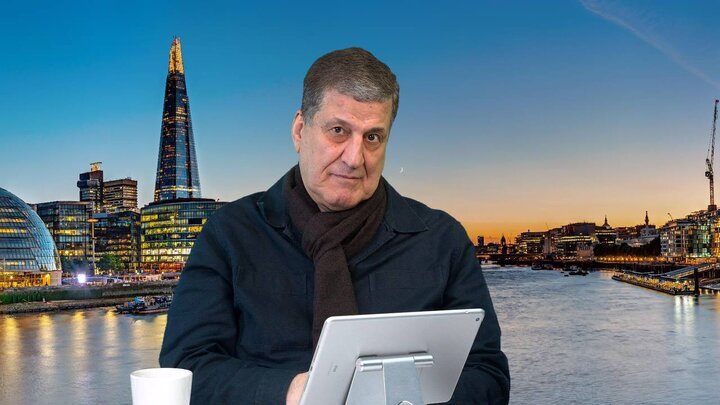Using US and regional information, the future of these consultations is anticipated, leveraging the role of the Persian Gulf Cooperation Council (PGCC) countries, particularly Saudi Arabia and Iraq.
Amidst ongoing attacks in Yemen and regional tensions, including reporting potential ground attacks on Ansarlah and reporting Sanaa’s governing authority, negotiations face complex challenges, coupled with growing influence from local actors. However, this could lead to new scenarios based on balance of interest and strategic pressures.
It is noteworthy that PGCC countries (Saudi Arabia, Qatar, Bahrain, Kuwait and Oman) have adopted a unified stance in supporting Iran’s cooperation, which has become a condition for security and economic guarantees, as reports emerge about possible political solutions to Iran. Reliable reports show that Saudi Arabia, the United Arab Emirates and Qatar refuse to allow Israel to use airspace for military strikes in Iran, indicating their desire to avoid direct conflict with Iran.
This position stems from economic concerns as PGCC countries rely on oil market stability and critical infrastructure. This could be targeted, especially in the case of rising tensions, such as in Ansarlah in Iran and Yemen, along with the continued US strike in Sanaa. These countries also view the negotiations as an opportunity to achieve regional stability and support development agendas such as Saudi Arabia’s Vision 2030, which aims to diversify the economy and reduce oil dependence.
The support for PGCC talks shows significant changes in the region compared to 2015, when Saudi Arabia criticised Iran’s strong opposition to Iran’s nuclear deal and strengthened Tehran’s influence, according to the New York Times. Today, these countries support dialogues that limit Iran’s nuclear program and prevent regional wars that threaten economic and security stability.
Saudi Arabia has shown support for nuclear talks and emphasizes support for diplomatic efforts to resolve regional and international conflicts. This stance reflects significant improvements in Saudi Arabian relations since the 2023 China-brokered regularization agreement. A visit to Tehran from Saudi Defense Minister Khalid bin Salman on April 17, 2025 was considered “the highest level of visit in decades.”
During his visit, Prince Khalid met with Major General Mohammad Bagheri, the chief of military staff in Iran, and sent a message from King Salman bin Abdulziz to the supreme leader Ayatollah Ali Khamenei. According to the IRNA, the discussion focused on advances in defense relations, regional cooperation to promote peace and stability, and the fight against terrorism. A visit prior to the second round of nuclear talk in Rome underscored Saudi Arabia’s intention to play an active role in removing tensions, especially in the case of our nuclear facilities and Israeli failure, in light of Israeli threats.
The motivation behind the visit is multifaceted. First, Saudi Arabia aims to protect its economic security, as military escalations can put oil infrastructure at risk, as seen in previous attacks caused by Iran’s allies. Second, Riyadh aims to strengthen its diplomatic influence as a regional force, particularly after successfully reducing tensions in Yemen through a reconciliation with Iran. Third, Saudi Arabia recognizes that Israel’s expansionist agenda poses threat to global security and is trying to balance relations between the US and Iran to avoid being drawn into conflicts that do not serve their interests.
While Iraqis are obsessed with discussions about inviting Ahmed Alshara to Baghdad’s upcoming Arab League summit, they are obsessed with reporting on the secret visit with Alsharaa of the Iraqi Prime Minister’s secret visit to Doha, Iraq supports the nuclear talk to play a diplomatic role in supporting the nuclear talk and to promote the urgent dialogue between Iran and Iran. It benefits stability, security and the economy.
Baghdad, who previously hosted Saudi Alana dialogue and nuclear talks prior to the 2015 agreement, aims to solidify his role as a player in the neutral region and strengthen his diplomatic position. Iraq has acquired it from consultations in several ways. First, the success of nuclear deals could lift sanctions against Iran and boost bilateral trade with Iraq, particularly in energy and commodities. Second, lower regional tensions will reduce the risk of conflicts flowing into Iraq, particularly given the presence of US troops. Third, regional stability supports Iraq’s reconstruction efforts, which rely on regional and international investments.
According to the US intelligence agency cited by Axios, the Trump administration on Iran is split, with hardliners advocating for military options and diplomats support dialogue. Conversely, the Israeli Intelligence Report document, which was leaked in October 2024, reveals preparations for a strike at Iran’s nuclear facility, complicating consultations. Iran has shown conditional flexibility, including discussing the transfer of uranium stockpiles to Russia, but has secured its rights to the nuclear fuel cycle.
Three possible scenarios for the future of negotiations are:
Comprehensive agreement: in exchange for a step-by-step sanctions relief that appears to be plausible based on the current climate and reporting, including strict restrictions on Iran’s nuclear program.
Failure of consultations: Unacceptable US demands could drive Iran to accelerate its nuclear program and increase the risk of military conflict.
Interim agreement: focusing on issues such as uranium transfer and halting or reducing enrichment levels, postponing major conflicts that seem to be the most realistic scenario at the moment.
In conclusion, although nuclear negotiations face complex challenges, the support of major Arab countries led by Saudi Arabia and Iraq’s role as a diplomatic facilitator increases the likelihood of success. Through a visit to Tehran by the Minister of Defense, Saudi Arabia is seeking to ensure regional stability, maintain economic interests and strengthen its diplomatic role. Iraq benefits from potential stability and trade with Iran. It is challenging, but not impossible, to achieve an inclusive agreement based on intelligence. Diplomatic dialogue also remains the best option to prevent escalations that could lead to devastating war on the region.
MNA/

